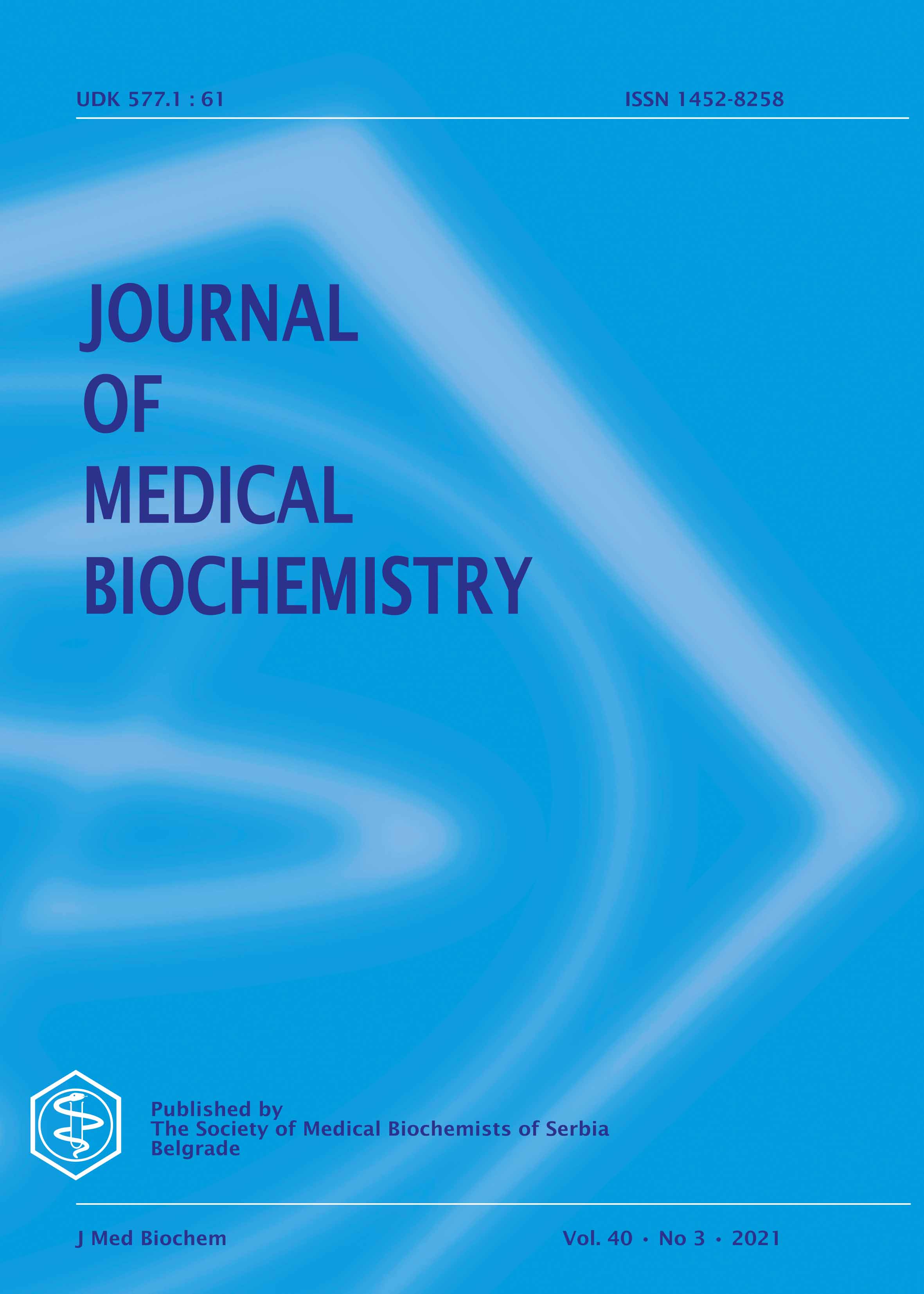Stability of hematological analytes during 48 hours storage at three temperatures using Cell-Dyn hematology analyzer
Stability of hematological analytes
Sažetak
Background: The complete blood count (CBC) with differential leukocyte count (DLC) is one of the most common tests requested by physicians. The results of this test are affected by storage temperature and time of incubation. This study was designed to evaluate the stability of hematologic parameters in blood specimens stored for 48 hours at three temperatures.
Methods: K2 EDTA- blood was collected from 22 apparently healthy adults. The CBC was performed using Cell-Dyn 3700 hematology analyzer (Abbott Diagnostics, IL, USA) immediately; 0 Time Point and at 4, 8, 12, 16, 20, 24 and 48 h after storage at 4°C, 10°C or 23°C. Changes in values of CBC parameters from the 0 Time Point were determined and reported as % of the initial value. Statistical comparisons were made using the paired-t test and the repeated measures ANOVA.
Results: RBC, PLT, Hb and MCH were found stable during 48 h storage at 4°C, 10°C or 23°C. HCT and MCV increased, while WBC decreased significantly at 48 h when stored at 23°C. LYM, NEU, EOS and BASO values showed significant differences after 12 h of storage at 23°C. WBC, HCT, MCV, MCHC, RDW, NEU, MONO, BASO and EOS were stable for 48 h if blood samples were stored at 4°C or 10°C.
Conclusions: RBC, PLT, Hb and MCH are the only suitable parameters without refrigeration during 24 h storage. When CBC and DLC are performed, 4°C can be recommended as the most suitable storage temperature for 12 h storage.
Sva prava zadržana (c) 2020 Sevda Ünallı Özmen

Ovaj rad je pod Creative Commons Autorstvo 4.0 međunarodnom licencom.
The published articles will be distributed under the Creative Commons Attribution 4.0 International License (CC BY). It is allowed to copy and redistribute the material in any medium or format, and remix, transform, and build upon it for any purpose, even commercially, as long as appropriate credit is given to the original author(s), a link to the license is provided and it is indicated if changes were made. Users are required to provide full bibliographic description of the original publication (authors, article title, journal title, volume, issue, pages), as well as its DOI code. In electronic publishing, users are also required to link the content with both the original article published in Journal of Medical Biochemistry and the licence used.
Authors are able to enter into separate, additional contractual arrangements for the non-exclusive distribution of the journal's published version of the work (e.g., post it to an institutional repository or publish it in a book), with an acknowledgement of its initial publication in this journal.

